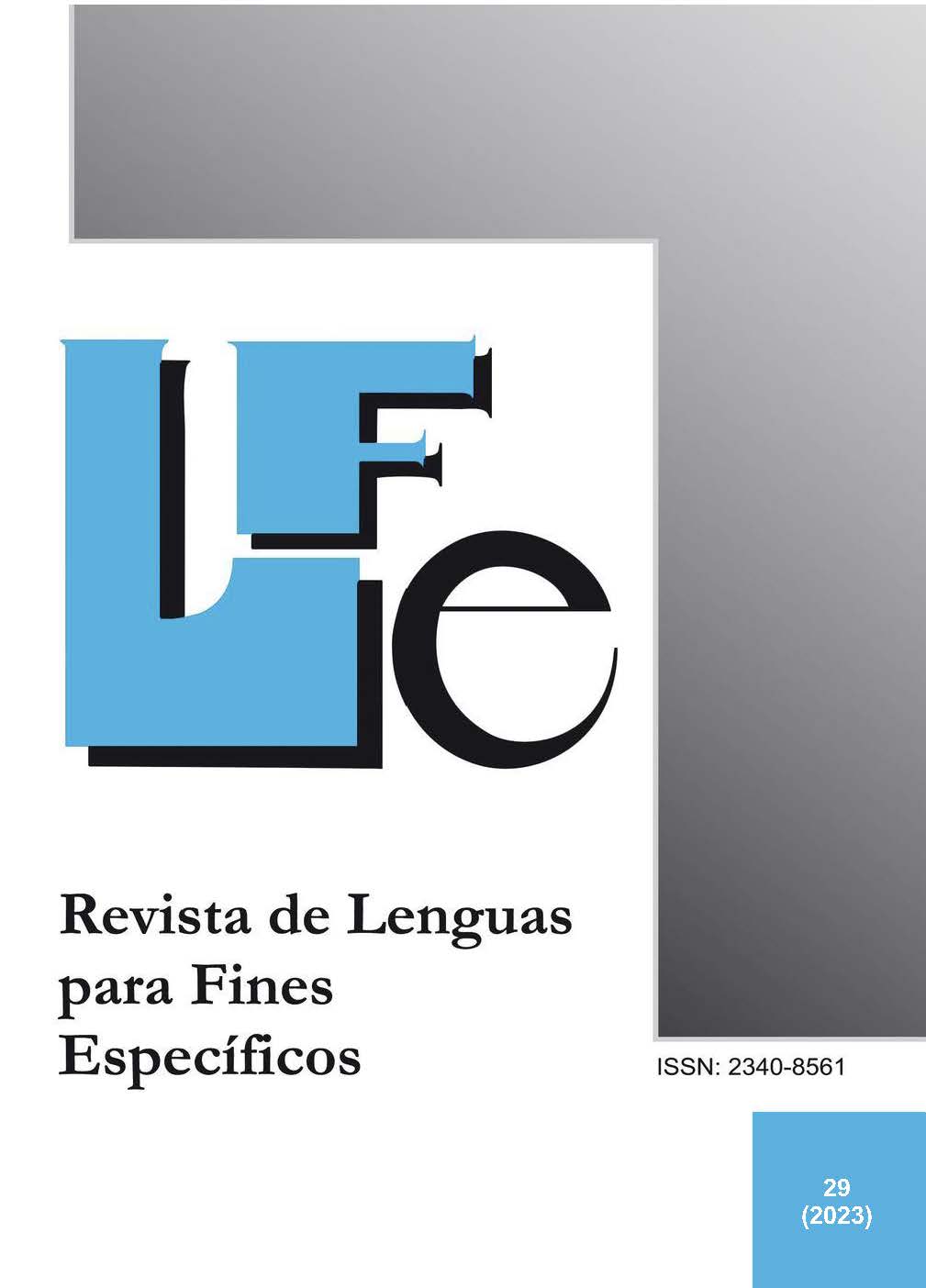Book Review: Ruggiero, Diana (2022). Teaching World Languages for Specific Purposes: A Practical Guide. Georgetown University Press, pp. 121
Keywords:
LSP teachingAbstract
In Teaching World Languages for Specific Purposes: A Practical Guide, the author, Diana Ruggiero, Associate Professor of Spanish at the University of Memphis, draws on her over 10 years of experience designing and teaching Spanish as a world language for specific purposes (WLSP) in American higher education. Though Spanish in the US is the context within which she works, the book is intentionally written to be applicable to the teaching of all WLSPs and not just in the US context of higher education. The book also sets out to be useful to foreign languages instructors of all backgrounds that already have a foundation in language teaching in general and encourages them to build their own WLSP courses using their unique strengths and perspectives. Chapters 1-4 provide context for teaching WLSP, addressing issues such as the definition, scope, and benefits of WLSP, as well as preparation to teach WLSP. Chapters 5-11 address curricular development in community service learning (CSL), to which the author devotes considerable attention, the integration of WLSP into foreign languages classes, interpreting, culture, heritage language learners, and WSLSP during COVID-19. Lastly, the book concludes with a collection of teaching materials appendices ranging from specific online and print resources to a sample syllabus, lesson plans, assignments, and assessments.
Downloads
References
Alcaraz Varó, E. & Hughes, B. (2002). Legal translation explained. Manchester: St. Jerome Publishing.
Hutchinson, T. & Waters, A. (1987). English for Specific Purposes: A learning-centred approach. Cambridge University Press.
King de Ramírez, C. & Lafford, B. (2018). Introduction. In C. King de Ramírez & B. Lafford (Eds.), Transferable skills for the 21st century: Preparing students for the workplace through world languages for specific purposes (pp. 1–20). Sabio Books.
Matthews, G. & Ardemagni, E. (2013). Judicial interpretation education in U.S. colleges and universities: The path to academic recognition. Translation and Interpreting Studies, 8(1), 73–93.
Mikkelson, H. (1994). The interpreter's Rx: A training program for Spanish/English medical interpreting. ACEBO.
Downloads
Published
How to Cite
Issue
Section
License
Authors who publish with this journal agree to the following terms:
- Authors retain copyright and grant the journal right of first publication with the work simultaneously licensed under a Creative Commons Attribution License that allows others to share the work with an acknowledgement of the work's authorship and initial publication in this journal.
- Authors are able to enter into separate, additional contractual arrangements for the non-exclusive distribution of the journal's published version of the work (e.g., post it to an institutional repository or publish it in a book), with an acknowledgement of its initial publication in this journal.
- Authors are permitted and encouraged to post their work online (e.g., in institutional repositories or on their website) prior to and during the submission process, as it can lead to productive exchanges, as well as earlier and greater citation of published work (See The Effect of Open Access).

Revista de Lenguas para fines específicos is licensed under a Creative Commons Reconocimiento-NoComercial-SinObraDerivada 4.0 Internacional License.
























